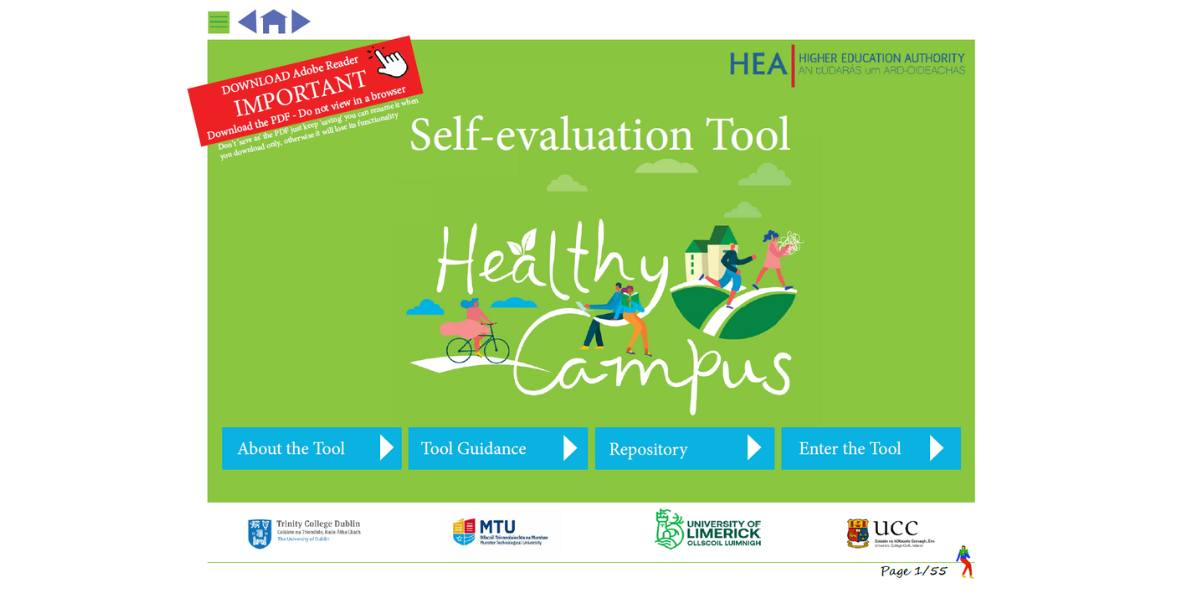
Find information on how to make a Protected Disclosure under the external procedures in place in the HEA.

The HEA’s Healthy Campus Self-evaluation Tool helps institutions in Ireland assess their performance in supporting and promoting health and wellbeing on campus.
The Tool supports institutions to implement stages of the Healthy Campus Process (page 4 of the Framework) including Stage 3 ‘Consult’ (Mapping of Current Activity and Consultation) and Stage 4 ‘Create’ (Action Planning). It aligns with the HEA Healthy Campus Charter and Framework’s whole campus approach, which is made up of four Pillars as follows below, along with a fifth Pillar focused on important ‘health focused areas’:
The HEA Healthy Campus Self-evaluation Tool is supported by a resource Repository to aid institutions on their journey to creating a healthier campus environment.
The Tool also takes into account important policies and frameworks that are relevant to HEIs, including the National Student Mental Health and Suicide Prevention Framework and others, for example, HEA’s System Performance Framework 2023-2028, the Irish Human Rights and Equality Commission Act 2014, and the ESD to 2023: Second National Strategy on Education for Sustainable Development. Also included are references to the Ending Sexual Violence and Harassment in Higher Education Institutions 2022-2024 plan, and the National Access Plan 2022-2028.
A team, led by Trinity College Dublin, and including University College Cork, Munster Technological University and University of Limerick were awarded funding from the HEA to develop a Healthy Campus Self-evaluation Toolkit.
The Tool enables institutions to evaluate their Healthy Campus approach comprehensively, identifying internal strengths and areas for improvement in whole campus health and wellbeing initiatives.
The self-evaluation process enables institutions to identify gaps, barriers, and enhancement opportunities in health promotion efforts. Internal benchmarking prioritises resource allocation to advance health and wellbeing goals.
Internal benchmarking using the Self-evaluation Tool helps institutions track progress towards health promotion goals. Regular assessment against benchmarks allows for trend identification, success celebration, and necessary adjustments to stay on track.
Internal benchmarking promotes accountability and transparency within institutions by structuring performance evaluation and outcome reporting in health promotion. This cultivates a culture of accountability and supports ongoing health and wellbeing efforts for staff and students.
The Self-evaluation Tool informs decision-making on health promotion, resource allocation, and strategic planning. Data driven insights into current strategies enable informed
decisions about future priorities and investments in health promotion initiatives.